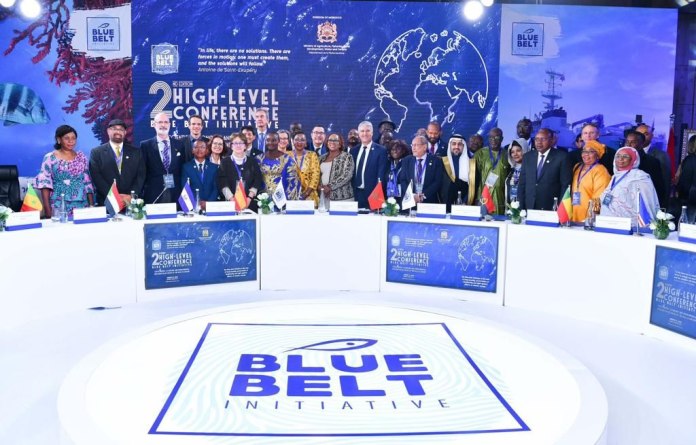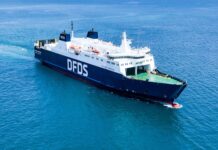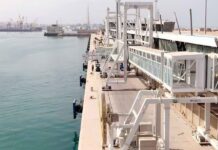During the opening of the 3rd High-Level Ministerial Conference on the Blue Belt Initiative (BBI), Morocco’s Minister of Agriculture, Maritime Fisheries, Rural Development, Water, and Forests, Mohamed Sadiki, underscored the pivotal role of the initiative as a key driver of South-South cooperation in Africa’s fisheries sector.
Launched in 2016, the Blue Belt Initiative has swiftly garnered the support of over 32 countries from Africa and other continents, illustrating its growing adoption among African nations. Minister Sadiki emphasized that this collaborative platform aims to promote responsible practices in marine resource management, providing African states with innovative solutions to optimize their resources while enhancing the economic and biological efficiency of their fisheries sector.
The BBI is built on three foundational pillars: observation and research, sustainable fishing, and sustainable aquaculture. These pillars are designed to equip African partner countries with the operational tools necessary to achieve their strategic goals. A key aspect of the initiative is facilitating access to sustainable financing, thereby helping to bridge the gap between financial resource availability and demand.
As explained by Sadiki, the overarching goal is to lay the groundwork for sustainable food resources and job creation linked to Africa’s burgeoning blue economy. Morocco, through regional and multilateral cooperation, aims to foster a thriving blue economy, leveraging its extensive experience gained through the national Halieutis strategy.
This Halieutis strategy, launched in 2009 under the guidance of King Mohammed VI, is now in its second phase (2020-2030) and aims to position the fisheries sector as a cornerstone of sustainable economic and social development. The minister highlighted the “encouraging” results of this strategy, reinforcing the notion that a sustainable blue future is achievable through strengthened collaboration among African nations.
To fully tap into Africa’s potential in terms of “Blue Food and Jobs,” it is crucial to intensify scientific research efforts and develop aquaculture projects. The BBI’s collaborative platform, along with innovative financing mechanisms, provides essential tools to help meet these objectives.
The conference, which brought together representatives from 32 countries, including 16 ministers, is seen as a hub of opportunity. It will allow African states to identify strategic partnerships and create actionable plans, drawing on scientific expertise to develop a blue economy centered on food security and job creation.
Sadiki urged all participants to build on past achievements and lay the foundations for a better future. This event is part of the African Ocean Week, held in Tangier from October 7-10, featuring rich discussions on the challenges and opportunities related to ocean-driven economic growth for the African continent.





